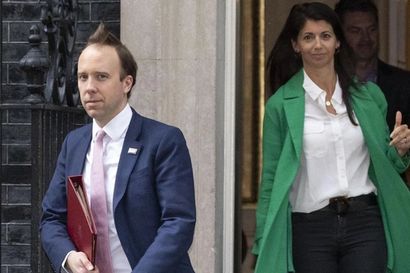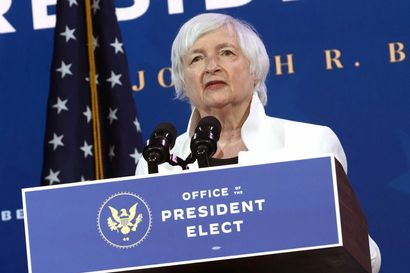The Week in Westminster: The General Election 2019 campaigns kick off
Your need-to-know guide to this week's UK political happenings
Welcome to The Week in Westminster – a new series from Gentleman’s Journal serving up everything you need to know about UK politics in one easy-to-digest weekly package. Never, it seems, has there been so much news to follow and so little time to follow it. So, if you’re headed to a dinner party tonight and haven’t so much as glanced at the politics pages, think of us as your essential conversation primer when the inevitable B-word comes up.
And what a week to begin. With a General Election looming on 12 December, this week saw the major political parties launch their campaigns and put their policy cards on the table. So let’s start with a quick rundown of the key talking points…
Conservative
Brexit: Perhaps unsurprisingly given Boris Johnson’s ‘do or die’ pledge to deliver Brexit in October, the Tories are going hard on promises to ‘get Brexit done’ by January 2020. They’ll continue to push Boris Johnson’s deal so this is nothing vastly different to what they’ve been saying for the past few months.
Tax: Lower taxes for corporations and high-earning individuals is the name of the game. Specifically raising the higher rate threshold for individuals from £50k to £80k along with an increase in the threshold from which National Insurance is paid.
Spending: Investment in the NHS, schools and public services have all been promised, with the Tories pledging to build 40 new hospitals in England, a 1.7% increase in universal credit payments, an increase in state pension to £175.20 per week and investment in strategic road networks. Police ranks are also set to swell by 20,000 in England and Wales while proposed heavier sentences for violent offenders signals a possible increase in spending on prisons.
Labour
Brexit: Labour are now firmly behind giving the general public a final say vote on the Brexit deal, saying the choice will be ‘between leaving with a sensible deal or to remain in the European Union’. In essence, Labour would renegotiate a fresh deal and then let the people decide whether to take it or scrap Brexit altogether.
Tax: Labour will fund its increased public spending by raising income tax on the UK’s top 5% of earners – the same policy made in the 2017 manifesto equated to a 45p rate on earnings over £80,000 and a 50p rate over £123,000 – as well as increasing tax on private medical insurance. At the other end of the scale, Labour will scrap universal credit and end both the benefits freeze and two-child benefits limit.
Spending: A ‘green industrial revolution’ would fund energy-saving upgrades to low income households to the tune of a saving of £417 per household per year while investment in the NHS will see prescription charges scrapped, trainee GP numbers grow by 50% and the foundation of a state drug company to develop cheaper medicines. There’s also potential renationalisation on the cards for the gas and electric networks, railways, the Royal Mail and water and sewerage companies as well as a promise of year-long maternity paid leave.
Liberal Democrats
Brexit: Hate the idea of Brexit? The Lib Dems are the party for you. They came out swinging with a pledge to stop Brexit once and for all should they be elected.
Tax: The Lib Dems haven’t made any specific promises around taxes, instead saying they would fund public spending with a £50 billion ‘Remain bonus’ gleaned from savings made by staying within the EU.
Spending: The climate, NHS and education are top of the agenda. Schools will receive an extra £10 billion per year, in part to pay for 20,000 more teachers, while free childcare will be offered from nine months and each adult will receive £10,000 to spend on skills and training. Increased investment will also see 80% of electricity generated by renewable sources by 2030, and all low-income homes insulated by 2025, while mental health will be given the same financial priority as physical illness.
Best of the rest…
Brexit party: The clue’s in the name gents – they’re basically a one party policy. Get out or go home.
Green: The focus here, clearly, is on measures to fight the environmental crisis but this is a little more wide ranging than it sounds. Key policies include creating more thoughtful property development processes, reforming the electoral system, fighting for LBQTIA+ rights and promising a People’s Vote on Brexit.
SNP: Treating the Brexit saga as a renewed reason for an independence referendum, the SNP are promising to stay in the EU and, in turn, holding a new vote on Scottish independence. For a wider view on the SNP’s policies, leader Nicola Sturgeon has suggested the SNP may ‘prop up’ a Labour government in return for an independence vote (something Johnson has unequivocally promised to refuse). They’re also promising cheaper visas for NHS staff and year-long statutory maternity leave.
So what else has been going on?
With so much attention focused on current and prospective MPs, this week has been packed with noteworthy moments. The Tory campaign got off to a shaky start with a series of embarrassing incidents, including Jacob Rees-Mogg suggesting the Grenfell Tower victims lacked common sense for following the orders of firefighters, Welsh Secretary Alun Cairns resigning after it emerged he was aware of a former aide’s role in sabotaging a rape trial, candidate Nick Conrad stepping down over victim blaming rape comments and Tory MP James Cleverly being torn apart by Sky News’ Kay Burley after failing to show up for a scheduled interview. Oh, and there is also the somewhat suspicious matter of the government blocking the publication of a report into Russian interference in the referendum until after the election.
Meanwhile, there was betrayal over in the Labour camp as former Labour MP Ian Austin urged people to vote for Boris Johnson while the Jewish Chronicle ran a front page asking voters to snub Labour over its anti-semitism controversy. In response the party blocked Chris Williamson, one of the MPs caught up in the scandal, from standing as a candidate while deputy leader Tom Watson also stepped down for personal reasons, saying he remained ‘as committed as ever’ to Labour.
Elsewhere, the Lib Dem, Greens and Plaid Cymru announced a pact in which they agreed not to stand against each other in tactical seats to avoid splitting anti-Brexit voters. This is a somewhat unusual move, demonstrating the strength of feeling over Brexit within these parties, although analysts predict the pact will only affect results in around six seats. Similarly Sinn Fein and the SDLP have agreed to stand aside to boost chances of Remain parties against the DUP in Northern Island.
MVMP: Sir Lindsay Hoyle, who was elected Speaker of the House this week – with big boots to fill.
Quote of the week: “Brexit is the biggest mistake of this country after the war.” John Bercow, finally released from the shackles of impartiality after standing down as Speaker of the House, tells it like it is.
Want more politics? Read the confessions of a Westminster insider…

Become a Gentleman’s Journal Member?
Like the Gentleman’s Journal? Why not join the Clubhouse, a special kind of private club where members receive offers and experiences from hand-picked, premium brands. You will also receive invites to exclusive events, the quarterly print magazine delivered directly to your door and your own membership card.


